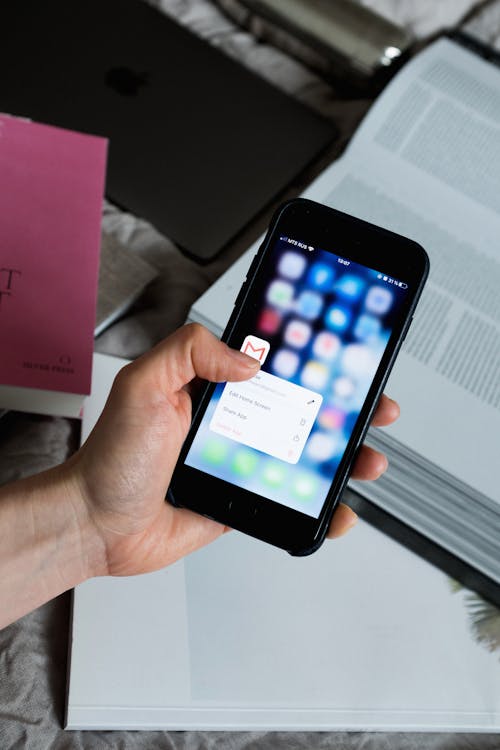Top 4 Email Security Best Practices for 2022
Many people think about the right security practices to follow when they are accessing websites online or when they are shopping online. However, there are various things that people need to consider when using email to correspond with businesses or individuals. Email security is focused on at work, but it is not often thought of as a concern for people when they are not at their desks.
Email security best practices should be followed in any situation where email is being used to interact with another person or entity online. Whether you are at work or at home, keeping your data and personal information safe and secure requires following these email security practices correctly. Email and various other kinds of applications can cause security risks when not used with security in mind.
If you are interested in learning more about the top email security best practices for your use at home and at work in 2022, you need to read on!
Top Email Security Best Practices for 2022

1. Strong Passwords
There is no online account that is safe without a strong password protecting it. This is true of your work email as well as your personal email. You should never use passwords that include information that hackers could easily find out about you by looking through your social media or information that can be guessed with ease.
Strong passwords can be created for you using Google, or you can make certain that you use a different password that includes numbers, special characters, and capitalized letters for all of your various email accounts. You will also need to be certain that you never write your passwords down and store them in your desk or place them in plain sight. Passwords are one of the most important lines of defense for your email accounts, and you need them to work properly and be effective.
2. Use Multifactor Authentication
Many businesses require this process to be used before you can log into the network that you use for remote daily work. You can also set up multi factor authentication on your devices at home that access your email. This provides an added layer of authentication that must be passed in order to access your email accounts. Hackers might guess your password, but they should not be able to get it by biometric authentication or location and device authentication.
At this time, MFA can provide almost 100% security when you are using it correctly. Most companies will mandate the use of this kind of process to verify identity before accessing information connected to the company network. There is no reason that you should not take your own personal email security just as seriously. MFA is really easy these days as well and can be completed through the use of a simple biometric check on your phone or a code that is sent to another device.
3. Learn About Phishing
Phishing attacks have grown increasingly sophisticated during the pandemic, and hackers are getting better and better at creating bonds of trust for their outreach that lead to downloads of viruses or data theft. When phishing scams are sent to your email, they might be immediately obvious, but they can also be quite cleverly couched. These kinds of emails can pretend to be businesses that you interact with all the time, or they might even pretend to be items sent to you by a friend that you can download and enjoy.
Remember to hover over the links in any email to see if they actually lead to the site that you would expect them to go to. You can also look at the information from the sender to see if their email address looks legitimate. Phishing attacks can catch us all by surprise when we are not paying attention, and they can lead to outcomes as serious as data or identity theft. Being aware of phishing attacks can help improve your email security immensely.

4. Consider Avoiding Public Wi-Fi
When you are not at work or using a VPN for your internet access, you will not have the same protections in place that keep hackers or bad actors from accessing your personal information. Public Wi-Fi is, by nature, not fully secured. Remember this when you are thinking about using your email on your phone or on your laptop while connected to public Wi-Fi.
You will want to avoid using public Wi-Fi on any device that might deliver access to your personal information. There is never a totally secure public Wi-Fi access situation, so you will be wise to remember to stay away from banking, email, and other applications that could share your personal information with those who should not have access to it. If you have to use public Wi-Fi frequently, you will want to consider a personal VPN for your use when you are traveling or when you cannot access your personal email at home in a more secure fashion.
Email Security is Important to Protect Your Personal Data

If you have been worried about how to protect yourself from security risks that can occur due to phishing and other forms of attack within your email account, these tips will help you to avoid issues. Your work email is likely protected by all of these various processes and best practices, so you should copy the arrangement that you enjoy at work for your personal email. Email can be one of the key ways that hackers can gain access to your personal data unless you take the time to use correct email practices for security.
When you avoid the use of your email while on public Wi-Fi and set up multi factor authentication, you can eliminate a lot of your overall risk associated with email attacks. Being knowledgeable and vigilant can make all the difference in your email security experience. Use these tips, and you can prevent issues with your email that can lead to personal data theft or hacker access to your personal information.
Read also: Top Cybersecurity Issues Businesses Find Themselves Up Against

